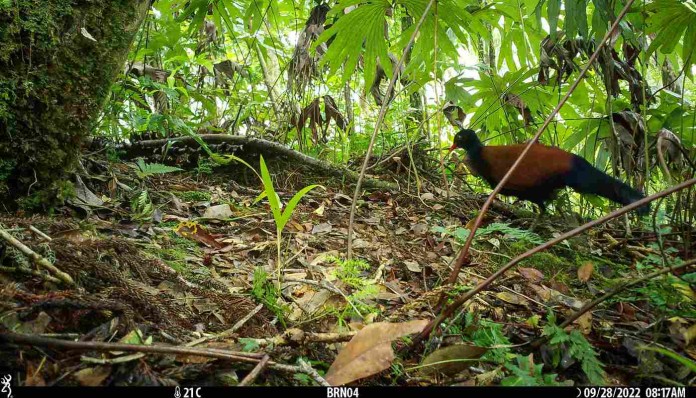Humans may be responsible for the extinction of nearly 1,500 species of birds, the majority of which have been wiped out since the end of the last ice age.
Nearly all these extinctions are thought to have occurred due to a number of human-driven factors, ranging from hunting and eating the birds to habitat destruction and introduction of invasive species, according to a new paper in the journal Nature Communications.
This number—about 1,430 bird species—represents about 12 percent of total bird species in the past 126,000 years. It is around twice that of the previous estimate of how many birds were driven to extinction due to human-related activity
“Our study demonstrates there has been a far higher human impact on avian diversity than previously recognised. Humans have rapidly devastated bird populations via habitat loss, overexploitation and the introduction of rats, pigs and dogs that raided nests of birds and competed with them for food,” study lead author Rob Cooke, an ecological modeler at the U.K. Centre for Ecology & Hydrology, said in a statement. “We show that many species became extinct before written records and left no trace, lost from history.”
According to the paper, the extinction rate of birds is harder to study than that of other organisms due to their delicate bones, meaning that most previous studies have only focused on bird extinctions over the past 500 years based on recordings of species present, thus excluding all the species that had gone extinct before records began. This team of researchers, however, looked into fossil records on islands including Fiji, Hawaii, New Zealand, and other Western Pacific Islands, as well as documentation.
The majority of the extinctions occurred since the beginning of the Holocene period around 11,700 years ago, just after the end of the last ice age. And 55 percent of these extinctions had not yet been discovered.
The researchers also saw a large spike in extinctions in the Pacific around 1300 CE, which coincides with the period when humans would have been migrating into the area. Species including the high-billed crow from Hawaii may have gone extinct during this time as a result of the arrival of humans.
“We estimate that the Pacific accounts for 61 percent of total bird extinctions. Bird extinction rate varied through time with an intense episode [around] 1300 CE, which likely represents the largest human-driven vertebrate extinction wave ever, and a rate 80 (60–95) times the background extinction rate,” the authors wrote in the paper.
The authors said the true number of species that have gone extinct due to human influence may be even higher in reality.
“These historic extinctions have major implications for the current biodiversity crisis,” paper co-author Søren Faurby, a researcher at the University of Gothenburg, said in the statement.
“The world may not only have lost many fascinating birds but also their varied ecological roles, which are likely to have included key functions such as seed dispersal and pollination. This will have had cascading harmful effects on ecosystems so, in addition to bird extinctions, we will have lost a lot of plants and animals that depended on these species for survival.”
“Whether or not further bird species will go extinct is up to us. Recent conservation has saved some species and we must now increase efforts to protect birds, with habitat restoration led by local communities,” Cooke said.
This article by Jess Thomson was first published by Newsweek on 19 December 2023. Lead Image: Stock image of a dead songbird. Human activity is estimated to have wiped out about 1,500 species of birds. ISTOCK / GETTY IMAGES PLUS.
What you can do
Help to save wildlife by donating as little as $1 – It only takes a minute.







Leave a Reply